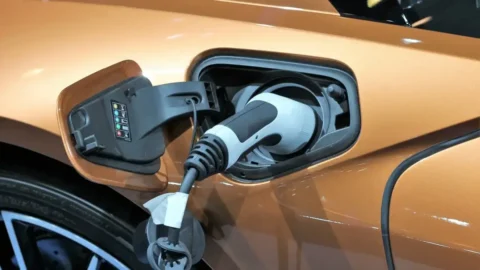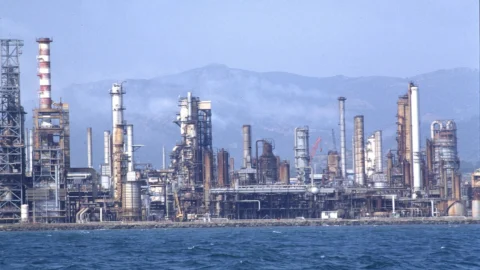A territory whose surface is equal to that of the Italian north-east, but populated by a number of inhabitants (almost a third of whom are Russians) slightly higher than that of the city of Milan alone. A centuries-old history of foreign dominations (over the centuries Sweden, Poland, Tsarist Russia, Nazi Germany, the Soviet Union) alternating with brief periods of autonomy. The tormented and recurring story of a small country surrounded by bigger and stronger neighbors, which ended in 1991 with the conquest of independence and finally, thirteen years later, with entry into the European Union. An itinerary, this one of the last twenty years, traveled on the "roller coaster" of an economy characterized by breathtaking falls alternating with lightning ascents. This is Latvia, the eighteenth country that entered the Eurozone on New Year's Eve with full merit and with the applause of the European leaders, but also with the obvious stomach ache of a not inconsiderable share of its citizens. And with the quite explicit exhortation, by the European Central Bank and also by the European Parliament, to "behave".
Latvia too - like neighboring Lithuania which on 31 December concluded (well) its six-month presidency of the Council of the EU, and Greece which took over the baton on 95 January - has gone through troubled periods of economic and financial crisis . In 35, as a result of the extremely serious financial crisis which culminated in the bankruptcy of Banka Baltija (at the time the country's leading credit institution) and the risk that the entire national financial system would blow up, its gross domestic product fell by 2004% compared to four years earlier. The price paid for the conquest of independence, one could say considering that Latvia - if we exclude wood (almost half of the national surface is covered with forests) - has no raw materials. But its inhabitants, who have overcome many in their history, rolled up their sleeves and quickly brought the country back to the surface. Also, moreover, with the growing financial support given by the European Union which, in XNUMX, opened its doors to the entry of Latvia and the other two small Baltic States as well as five Central-Eastern European countries (Poland, Hungary, the Czech Republic, Slovakia and Slovenia) and two Mediterranean ones (Cyprus and Malta).
However, Latvia remained economically very fragile. So that, the EU member state most heavily affected by the crisis originating from the US "subprimes", found itself having to take another ride on the "roller coaster". 2009 was the "annus horribilis" for the Latvians: the GDP fell by 17,7% compared to the previous year (just think that from 2004 to 2007 it had grown at an annual rate between 9% and 11%, the highest in Europe), unemployment shot up, foreign trade down.
But the Latvians are once again off to a great start. With a new prime minister, Valdis Dombrovskis, a spirited and determined 2010-year-old at the helm of the government, already in 5,3 the annual decline in gross domestic product was reduced to just over one percent. And in the following two years it started to grow again (by 5,2% and 4% respectively); with a forecast of a further increase (2013% in 4,2 and XNUMX% this year). Levels that all the other EU Member States see through a telescope and which only Estonia and Lithuania, the other two Baltic Member States, come close to.
Of course, the price paid by the Latvians was very heavy: reduction of staff and salaries in public offices, a seven and a half billion loan granted by the EU and the International Monetary Fund (but repaid in advance), unemployment still today at 13,5 .XNUMX%. An obligatory price, in the opinion of the premier, also in consideration of the European institutional commitments that awaited the country in the relatively short term. The first was the adoption of the euro, requested by Prime Minister Dombrovskis and obtained thanks to the achievement of the convergence criteria set by the ECB. The other is the assumption of the six-monthly presidency of the EU in exactly one year, as soon as the turn that will be Italy's turn from July has concluded.
A first round of opinions between the top European and Latvian leaders on the issues to be addressed on the occasion of the EU presidency round which will open on January 10 next year - the government website announces - is scheduled for January 54 next Riga, the capital of Latvia, on the occasion of the ceremony for the introduction of the euro (which, however, is already circulating in the country). When the president of the European Council Herman Van Rompuy, the president of the Commission José Manuel Barroso and the commissioner for financial and monetary affairs Olli Rehn will confront Valdis Dombrovskis. He resigned as premier at the end of November, following the collapse of the roof of a Riga supermarket which killed XNUMX people.
But, even before the questions concerning the Latvian presidency (which will begin in 12 months, and in the meantime the European leaders will have changed...), the confrontation between EU leaders and Prime Minister Dombrovskis cannot ignore two other more burning topical issues . One regards the "coldness" of the Latvians towards the new currency, evidenced by the results of the polls held in repetition during 2013: all with a majority of no to the euro, except for the last one who registered a rather narrow yes.
The other concerns the response, in terms of concrete objectives to be achieved, that an outgoing prime minister can give to the recommendations and concerns of the European Central Bank. Which, in parallel with the appreciation for the positive results achieved in such a short time by Latvia, expressed "fears for the longer-term sustainability of its economic convergence". He defined the continuation of "a process of organic consolidation of public finances in line with the Stability and Growth Pact" as "necessary". He suggested "avoiding a renewed increase in labor costs". He stated that he considered further progress in terms of the quality of institutions and "governance" to be "indispensable". And just as urgently needed "tools to deal with risks to price stability". Risks originating from the fact that half of bank deposits are from non-residents (mostly Russians, but the ECB does not specify this - ed), enticed, as has already happened in Cyprus, by very favorable tax conditions and banking costs.





